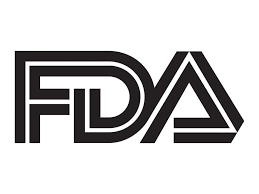Novel Drug Pivotal Trial Data Is Commonly Extrapolated for FDA Approval Indications
About 1 in 5 recent novel drug approvals were based on data extrapolated to a broader patient population or in regard to a concomitant drug use, including the controversial aducanumab indication from 2021.

Extrapolation is frequently found through pivotal trial data for novel drugs to have received US Food and Drug Administration (FDA) indications, according to new cross-sectional analysis of data accompanying FDA applications.
New research from a team of US investigators showed extrapolation—on the basis of characteristics including disease severity and subtype, plus concomitant medication use—is common from pivotal trial data to FDA-approved indications for novel therapies. The findings reflect a current necessity to compensate for preapproval trials’ lacking data on more detailed patient subpopulation and comorbidity-based outcomes—but also a greater need to inform and update novel drugs’ indications based on post-approval monitoring.
Led by Daniel Feldman, MPH, of Brigham and Women’s Hospital, Harvard Medical School and Rowan University School of Osteopathic Medicine, investigators sough to assess the prevalence of extrapolation past pivotal trial data and into approved indications for therapies, based on disease severity and subtype, and concomitant medication use.
As they noted, pivotal trials supporting FDA applications are generally limited in their observed patient population; while more attention has been given to the limitations of patient demographic diversity in such trials, less has been given toward whether a pivotal trial’s narrowly defined patient population is being used to extrapolate findings that would indicate the drug for a broader population.
For example, they noted, the FDA infamously approved aducanumab for the treatment of patients with Alzheimer disease last year—despite it only being previously assessed in patients with mild disease.
“Extrapolation from pivotal trials to a broader approved indication may be appropriate when there is no basis for expecting a different outcome in the wider post-approval population,” investigators wrote. “However, extrapolation can also lead to different clinical outcomes in practice than were observed in the pivotal trials.”
Feldman and colleagues conducted what they believed is the first systematic analysis of FDA approval data extrapolation, using characteristic data from patients included in 105 novel drug pivotal trials published from 2015 – 2017 to compare with the indications set by the FDA for each drug.
Their analysis included FDA reviews, published materials describing pivotal trial data, and the original labeling for each drug. They sought a primary outcome of nature and frequency of extrapolation from the pivotal study populations to the final indications granted by the FDA.
The team observed 113 novel drug approvals from their cohort; relevant information for the assessment were available for 105 (93%) of these drugs. Among them, 42 were approved in 2015, 20 in 2016, and 43 in 2017. The most common specialties associated with the observed novel drug approvals were oncology (n = 20 [18%]), hematology (14 [12%]), and gastroenterology and inborn errors (12 [11%]).
Investigators reported 23 instances of extrapolation from characteristics of patients in the trials to approved indications among 21 drugs (20%) from the observed time period—most frequently in 2015 (12 [29%]). Extrapolation on the basis of disease severity occurred 14 times; it occurred on the basis of disease subtype 6 times, and on the basis of use or nonuse of concomitant medications 3 times.
“Some of the extrapolations we identified may be clinically plausible, but others could have implications for the effectiveness and safety of drugs when used in accordance with the FDA-approved indication,” investigators wrote. “In some cases, the FDA acknowledges the presence of extrapolation in its review materials.”
In an editorial accompanying the research, Reshma Ramachandran, MD, MPP, and Joseph S. Ross, MD, MHS, of the Yalel School of Medicine, wrote that as was the case with aducanumab and even sacubitril valsartan, the FDA has extrapolated approved indications for use “without clear clinical rationale.” The approval of the latter, for example, sowed confusion when professional cardiovascular societies initially recommended its use on the basis of pivotal data, not the broader FDA approval.
“Patients and payers are then faced with whether to pay for or reimburse the cost of drugs with broadened indications for use, or only for patients who are similar to those tested in the pivotal trials,” Ramachandran and Ross wrote. “These findings also highlight the importance of pivotal trial inclusion and exclusion criteria for informing discussions of drug safety and efficacy in clinical practice.”
The pair recommended the FDA offer greater input on trial inclusion and exclusion criteria prior to pivotal trial enrollment, help to ensure that the trial population included in FDA drug applications better reflects the patients most likely to receive the approved drug. Additionally, the agency could include disclaimer language regarding extrapolation with drug indications—or provide conditional approvals requiring post-marketing studies to confirm the drug’s benefit in greater populations.
“Flexibility of the FDA in broadening or narrowing the indication approval from pivotal trial populations may occasionally be clinically warranted,” Ramachandran and Ross wrote. “Nonetheless, the rationale must be made clear to both patients and clinicians and be scientifically justified.”
Indeed, Feldman and colleagues concluded greater effort to address extrapolation from pivotal trials to FDA approvals must be undertaken by the agency and prescribing clinicians alike.
“When such clinical extrapolation is necessary at the time of approval, its details should be made clear in the labeled indications for physicians and patients,” they wrote. “Until that time, it would be useful for physicians to recognize that the FDA-approved indication alone may be insufficient information on which to decide whether a given medication will benefit a patient who may differ meaningfully from those studied in the clinical trials on which approval was based.”
The study, “Use of Extrapolation in New Drug Approvals by the US Food and Drug Administration,” was published online in JAMA Network Open.